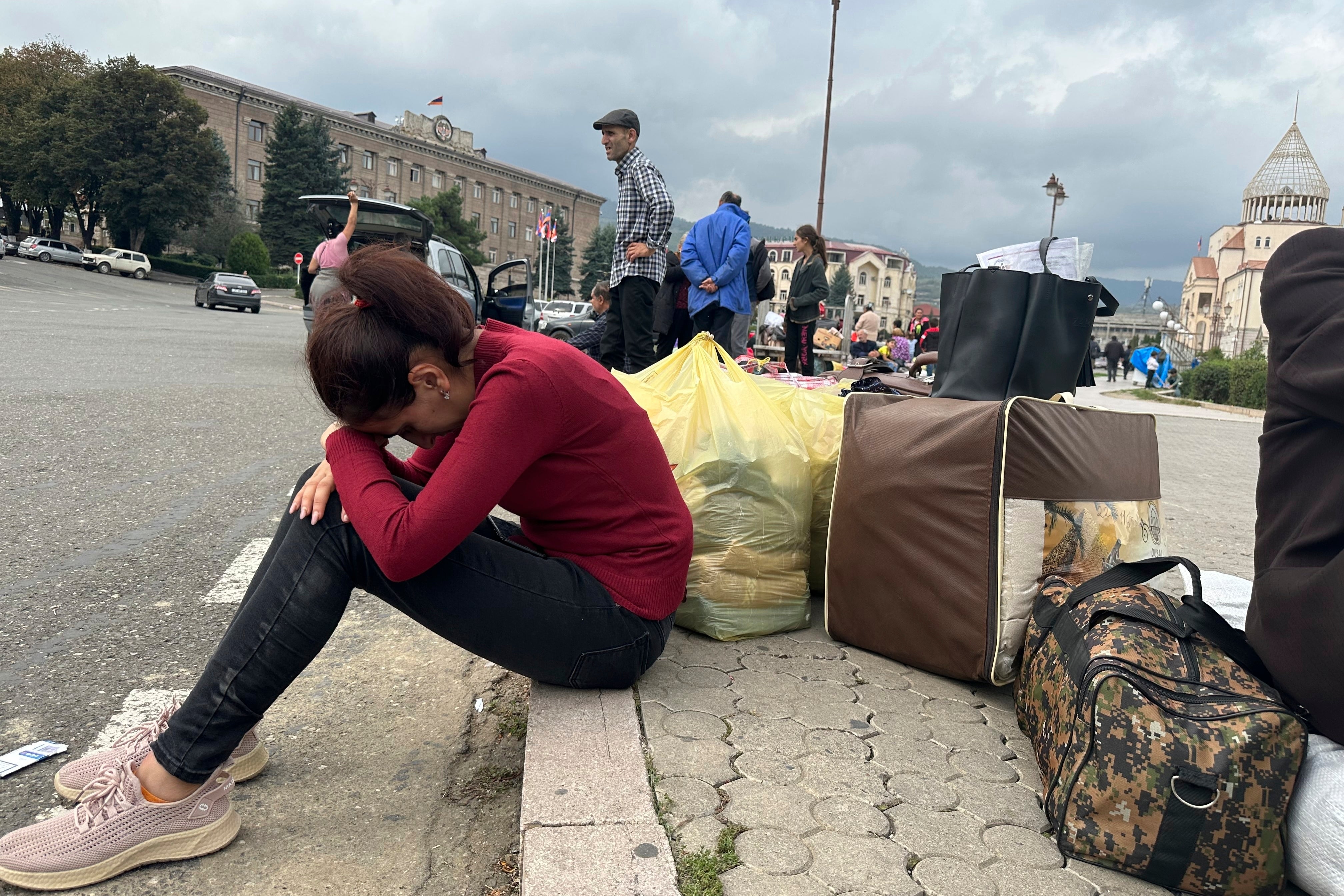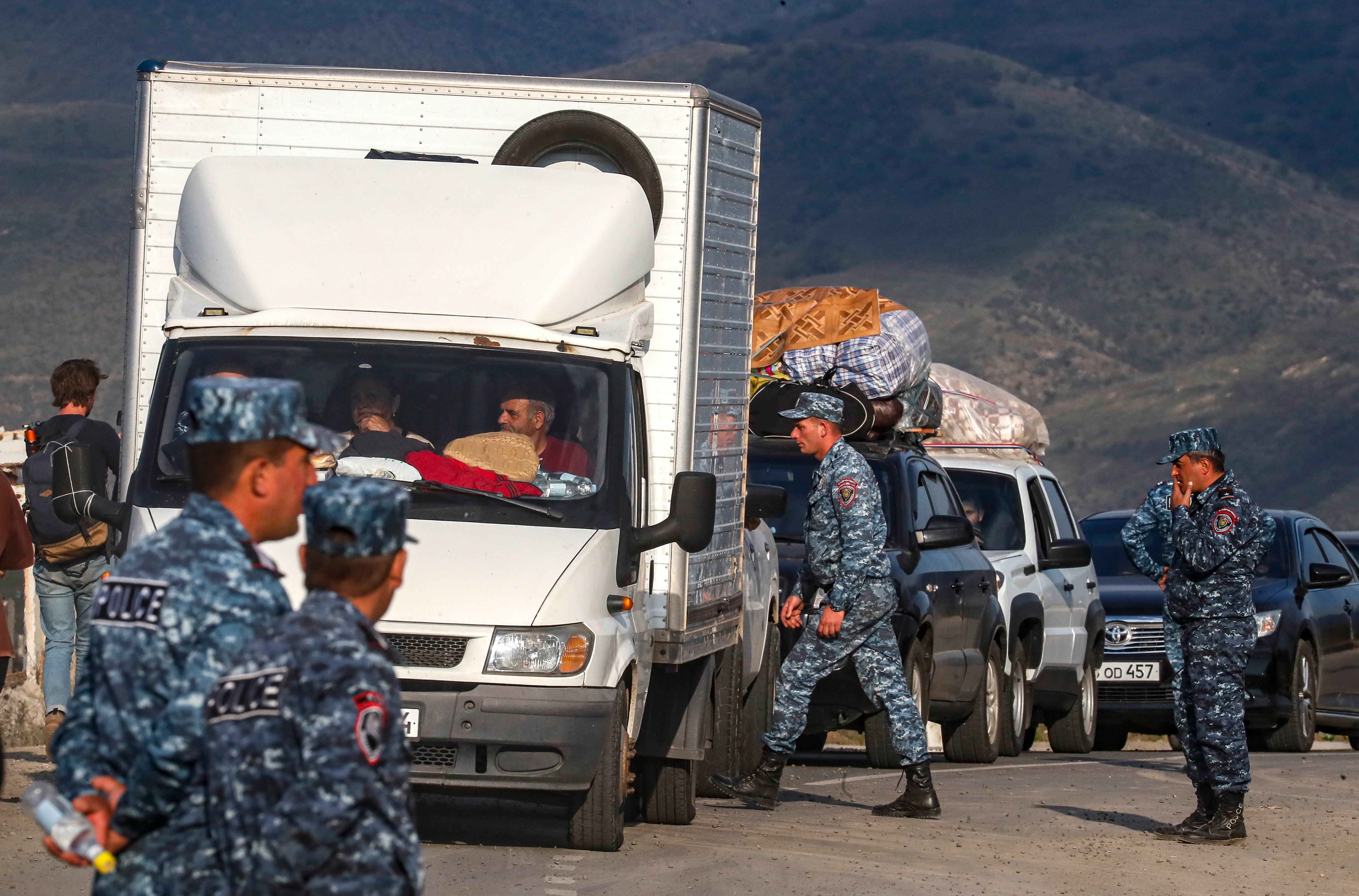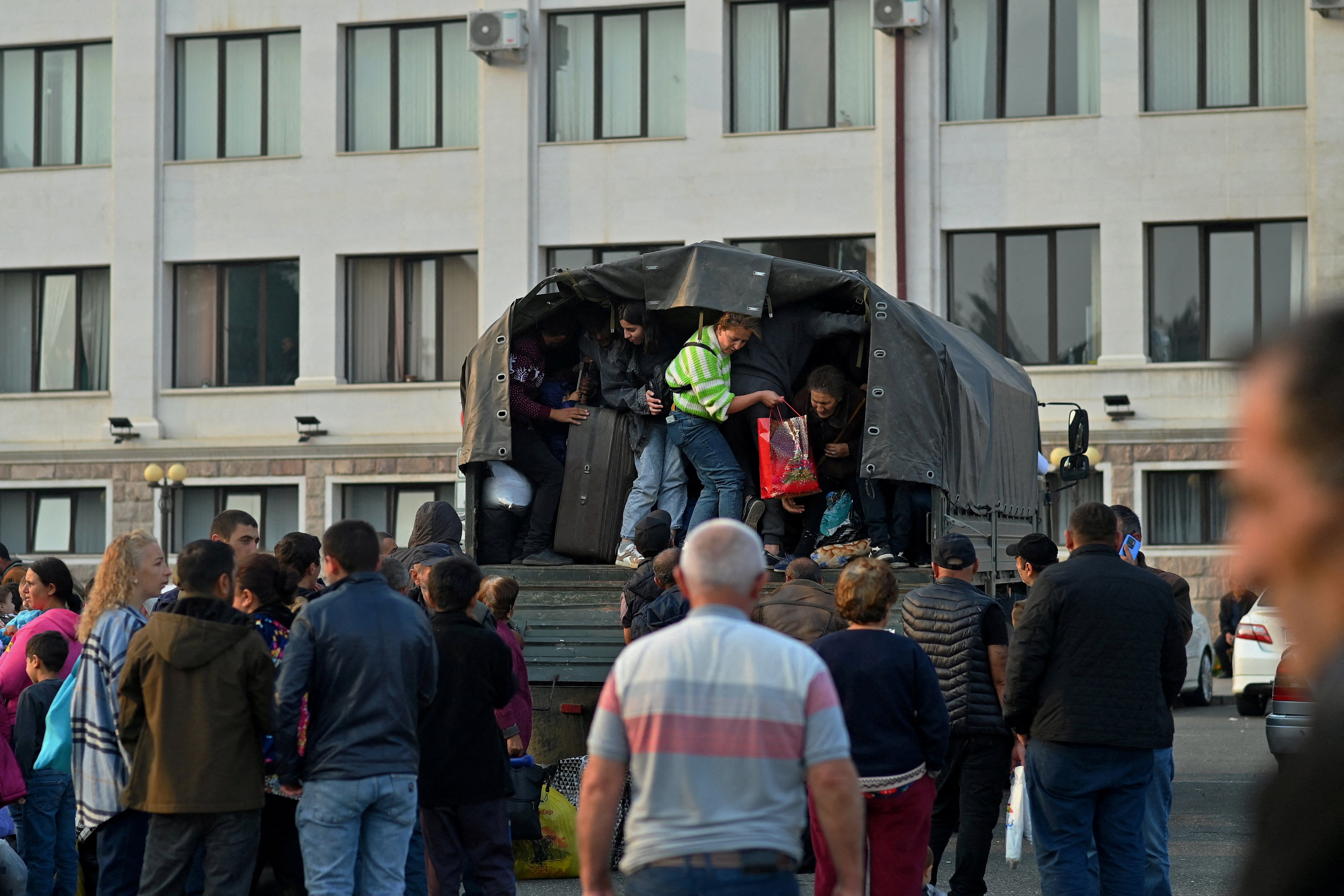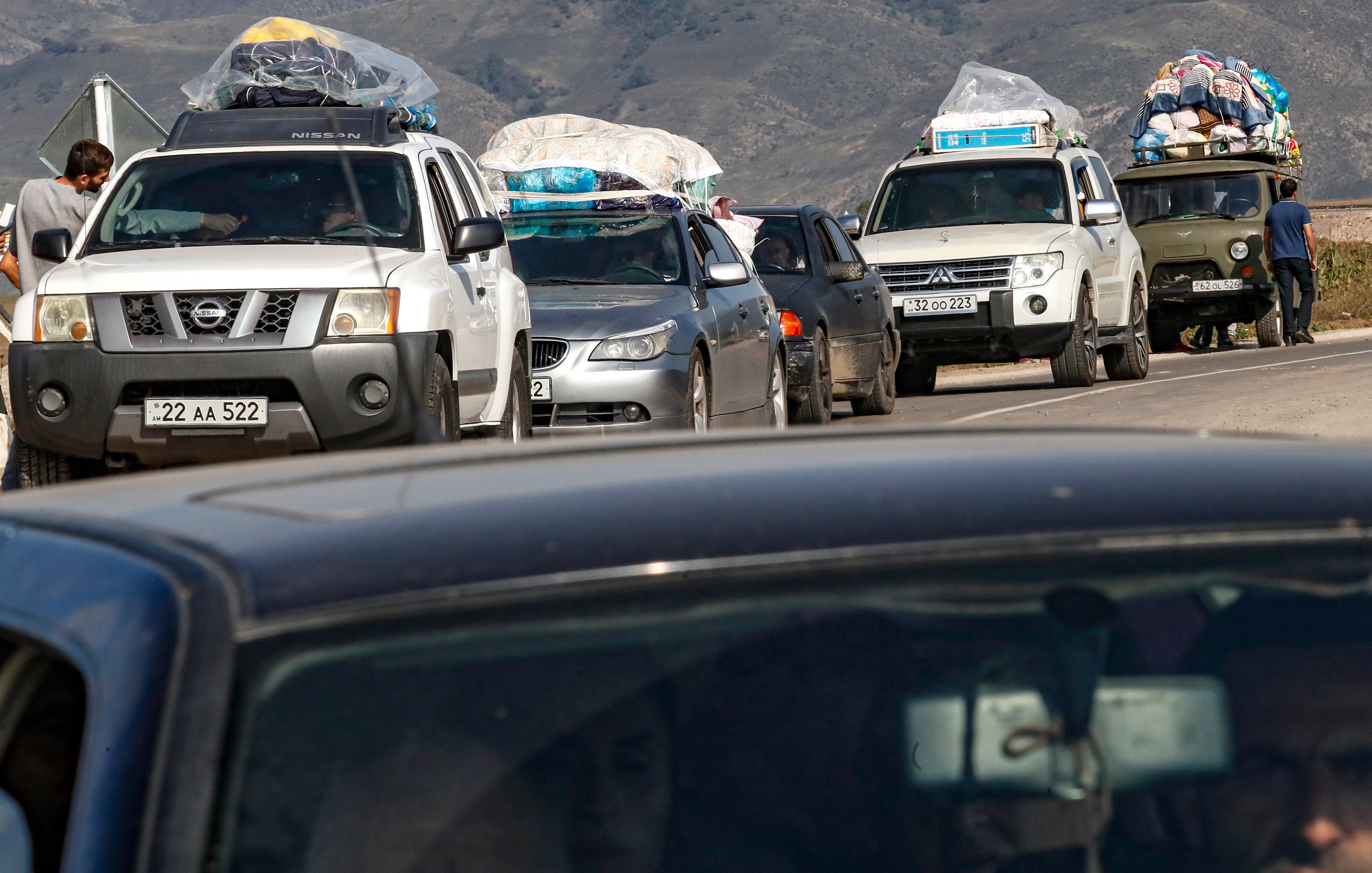Nagorno-Karabakh state will ‘cease to exist’ from January, separatist leader says
More than 70,000 ethnic Armenians have now fled the breakaway region

Your support helps us to tell the story
From reproductive rights to climate change to Big Tech, The Independent is on the ground when the story is developing. Whether it's investigating the financials of Elon Musk's pro-Trump PAC or producing our latest documentary, 'The A Word', which shines a light on the American women fighting for reproductive rights, we know how important it is to parse out the facts from the messaging.
At such a critical moment in US history, we need reporters on the ground. Your donation allows us to keep sending journalists to speak to both sides of the story.
The Independent is trusted by Americans across the entire political spectrum. And unlike many other quality news outlets, we choose not to lock Americans out of our reporting and analysis with paywalls. We believe quality journalism should be available to everyone, paid for by those who can afford it.
Your support makes all the difference.Ethnic Armenians in Nagorno-Karabakh have announced they will dissolve the breakaway statelet they defended for three decades, where more than half the population has fled from since Azerbaijan launched a lightning offensive last week.
The president of Armenia's self-declared Nagorno-Karabakh Republic, Samvel Shahramanyan, signed a decree that means the self-declared Republic of Artsakh will “cease to exist” by 1 January, in what amounts to a formal capitulation to Azerbaijan.
For Azerbaijan and its president, Ilham Aliyev, the outcome is a triumphant restoration of sovereignty over an area that is internationally recognised as part of its territory but whose ethnic Armenian majority won de facto independence in a war in the 1990s. For Armenians, it is a defeat and a national tragedy.
Some 70,500 people had crossed into Armenia by Thursday afternoon, Russia’s RIA news agency reported, out of an estimated population of 120,000.

“Analysis of the situation shows that in the coming days there will be no Armenians left in Nagorno-Karabakh,” Armenian prime minister Nikol Pashinyan said. “This is an act of ethnic cleansing.”
Azerbaijan denies that accusation, saying they were not forcing people to leave and that it will peacefully reintegrate the Karabakh region and guarantee the civic rights of the ethnic Armenians.
Karabakh Armenians have said they do not trust that promise, mindful of a long history of bloodshed between the two sides including two wars since the break-up of the Soviet Union. Since the military offensive, thousands have fled down the snaking mountain road through Azerbaijan that connects Karabakh to Armenia.
Azerbaijan’s ambassador to London, Elin Suleymanov, told Reuters that Baku did not want a mass exodus from Karabakh and was not encouraging people to leave.

He said Azerbaijan had not yet had a chance to prove what he said was its sincere commitment to provide secure and better living conditions for those ethnic Armenians who choose to stay.
Western governments have expressed alarm over the humanitarian crisis and demanded access for international observers to monitor Azerbaijan’s treatment of the local population.
Samantha Power, head of the US Agency for International Development (USAID), said this week she had heard “very troubling reports of violence against civilians”.
Azerbaijan said Mr Aliyev had told her at a meeting on Wednesday that the rights of ethnic Armenians would be protected by law, like those of other minorities.
“The Azerbaijani president noted that the civilian population had not been harmed during the anti-terrorist measures, and only illegal Armenian armed formations and military facilities had been targeted,” a statement said.
On Thursday, Mr Aliyev’s office said he was visiting Jabrayil, a city on the southern edge of Karabakh that was destroyed by Armenian forces in the 1990s, which Azerbaijan recaptured in 2020 and is now rebuilding.

While saying he had no quarrel with ordinary Karabakh Armenians, Mr Aliyev last week described their leaders as a “criminal junta” that would be brought to justice.
A former head of Karabakh’s government, Ruben Vardanyan, was arrested on Wednesday as he tried to cross into Armenia. Azerbaijan’s state security service said on Thursday he was being charged with financing terrorism and with illegally crossing the Azerbaijani border last year.
David Babayan, an adviser to the Karabakh leadership, said in a statement he was voluntarily giving himself up to the Azerbaijani authorities.
Mass displacements have been a feature of the Karabakh conflict since it broke out in the late 1980s as the Soviet Union headed towards collapse.
Between 1988 and 1994 about 500,000 Azerbaijanis from Karabakh and the areas around it were expelled from their homes, while the conflict prompted 350,000 Armenians to leave Azerbaijan and 186,000 Azerbaijanis to leave Armenia, according to “Black Garden: Armenia and Azerbaijan Through Peace and War”, a 2003 book by Caucasus scholar and analyst Thomas de Waal.
Many of the Armenians escaping this week in heavily laden cars, trucks, buses and even tractors said they were hungry and fearful.
“This is one of the darkest pages of Armenian history,” said Father David, a 33-year-old Armenian priest who came to the border to provide spiritual support for those arriving. “The whole of Armenian history is full of hardships.”
Join our commenting forum
Join thought-provoking conversations, follow other Independent readers and see their replies
Comments